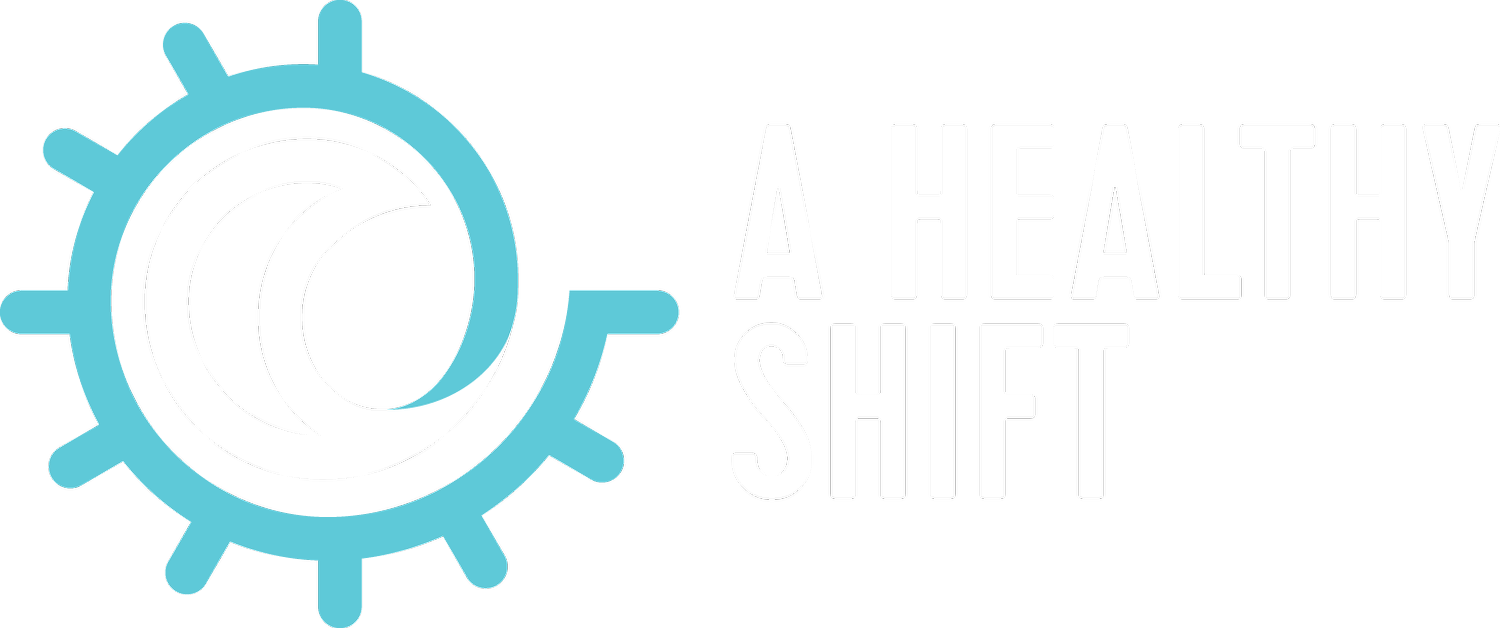The Importance of Magnesium: Enhancing Sleep and Health for Shift Workers
For shift workers, maintaining optimal health can be challenging, especially when dealing with irregular sleep patterns and stress. Magnesium plays a crucial role in the body, and increasing its intake can significantly benefit shift workers' sleep and overall health. Many clients of mine have experienced improved well-being by incorporating more magnesium into their diet and using supplements. Magnesium deficiency is common, particularly among women, which can adversely affect sleep and overall health.
Understanding Magnesium and Its Role in the Body
Magnesium is one of the 24 essential vitamins and minerals necessary for the body to function correctly. As an essential macro-mineral, the body requires large amounts of magnesium, which it cannot produce on its own. Therefore, magnesium must be obtained from external sources, primarily through diet. Magnesium-rich foods include:
Dark leafy greens
Seeds and nuts (sunflower, sesame seeds, cashews, almonds)
Squash, broccoli, and other vegetables
Legumes
Dairy products
Meat
Unprocessed whole grains
Dark Chocolate
Coffee
Prevalence of Magnesium Deficiency
Magnesium deficiency is common in shift workers, with estimates suggesting nearly half of adult men and women in both Australia and the United States aren't getting enough magnesium through their diet. Older adults are particularly vulnerable to magnesium deficiency, and women face a higher risk, especially with age. Magnesium supplements can be a quick, easy, and effective source to address this deficiency.
How Magnesium Works
Magnesium is involved in more than 300 enzyme-related reactions in the body's cells and plays several crucial roles, including:
Energy Production: Magnesium activates ATP, the energy molecule that fuels the body's cells.
Mineral Regulation: It helps transport calcium, potassium, and other essential minerals, ensuring proper muscle and nerve function and maintaining heart rhythm.
Blood Pressure and Cholesterol: It regulates blood pressure, cholesterol production, and blood glucose levels.
Bone Development: Magnesium aids in bone development and guards against bone loss.
Electrolyte Function: It functions as an electrolyte, maintaining fluid balance in the body.
Stress Response: Magnesium helps control the body's stress-response system and hormones that manage stress levels.
Benefits of Magnesium for Shift Workers
Maintaining healthy magnesium levels offers numerous health benefits, including improved sleep, mood stabilisation, stress reduction, enhanced cardiovascular and bone health, and better metabolic function, all crucial for shift workers.
Better Sleep
Insomnia is a common symptom of magnesium deficiency. Shift workers with low magnesium levels often experience restless sleep and frequent awakenings during the night. Magnesium helps maintain healthy levels of GABA, a neurotransmitter that promotes sleep. Research indicates that supplemental magnesium can improve sleep quality, especially in shift workers with poor sleep or those suffering from sleep disorders like restless leg syndrome.
Stress Reduction and Mood Stabilisation
Magnesium increases GABA levels, encouraging relaxation and sleep. Low GABA levels can make it difficult to relax, contributing to heightened stress and anxiety, common issues for shift workers. Magnesium deficiency is also linked to poor gut health and anxiety behaviours. Supplemental magnesium has been shown to stabilise mood and relieve symptoms of mild-to-moderate anxiety and depression.
Bone Health
Magnesium is critical for bone formation and maintaining bone density. It helps the body use calcium and Vitamin D, essential for strong bones. Higher magnesium intake is associated with greater bone density in older adults, and in postmenopausal women, it has been shown to improve bone mass, which is particularly beneficial for aging shift workers.
Cardiovascular Health
Magnesium regulates muscle function throughout the body, including the heart muscle, helping maintain a healthy heart rhythm. It also helps regulate blood pressure and cholesterol production. High dietary magnesium intake is linked to reduced mortality in people at high risk for cardiovascular disease. Magnesium deficiency is associated with elevated inflammatory markers, including C-reactive protein (CRP), a risk factor for cardiovascular disease, which is a concern for shift workers with irregular routines
Metabolic Health
Magnesium regulates blood sugar and metabolises glucose in the body. Higher magnesium levels are linked to a lower risk of type 2 diabetes and improved insulin sensitivity in people with diabetes. People with high magnesium intake have a lower risk of metabolic syndrome, a group of conditions that increase the risk of diabetes and cardiovascular disease, crucial for shift workers managing irregular eating patterns and stress.
Magnesium and Specific Health Conditions for Shift Workers
Pain Relief
Supplemental magnesium can help reduce pain intensity and improve mobility for people with chronic lower back pain and migraines. It also appears to alleviate symptoms of fibromyalgia, a condition that can be exacerbated by the physical demands of shift work.
PMS Symptoms
Magnesium can reduce premenstrual symptoms, including mood swings, irritability, anxiety, tension, and bloating, providing relief for female shift workers dealing with hormonal fluctuations.
ADHD Symptoms
Children with ADHD often have low magnesium levels, linked to impulsivity, inattention, and hyperactive behaviour. Studies suggest that supplemental magnesium may reduce hyperactivity and improve cognitive function in children with ADHD, which can help shift-working parents manage their children’s symptoms.
Athletic Performance
Magnesium plays a significant role in muscle health and energy production, potentially enhancing athletic performance. Supplemental magnesium can reduce the stress response to exertion and increase red blood cells and hemoglobin in athletes. In sleep-deprived individuals, magnesium improves exercise tolerance, which is beneficial for shift workers who need to maintain physical fitness despite irregular hours.
Magnesium: Dosage and Safety for Shift Workers
I generally recommend taking 100-350 mg of magnesium daily. I do advise starting at the lower end and gradually increasing as needed. Individual dosing can vary widely depending on magnesium levels, so it's essential to consult with a healthcare provider before starting any supplement regimen.
Possible Side Effects
Magnesium is generally well tolerated, but possible side effects include bloating, diarrhea, upset stomach, nausea, and vomiting. Very large doses can cause serious side effects such as low blood pressure, irregular heartbeat, mental confusion, changes in breathing, coma, and death.
Magnesium Interactions
Certain medications and supplements can interact with magnesium, including:
Antacids
Antibiotics
Anticoagulants
Biphosphonates
Boron supplements
Calcium supplements
Digoxin
Diabetes and high blood pressure medications
Muscle relaxants
Vitamin D supplements
Water pills
Zinc supplements
Conclusion
For shift workers, magnesium is an essential mineral that plays a critical role in maintaining overall health, including promoting better sleep, reducing stress, stabilising mood, and supporting bone and cardiovascular health. Given its importance, ensuring adequate magnesium intake through diet and supplements is vital for maintaining optimal health. Always consult with a healthcare provider before starting any new supplement to ensure it is safe and appropriate for your individual needs as a shift worker.
About Roger Sutherland
As a coach and advocate for shift workers, my goal is to provide practical, evidence-based strategies that empower individuals to thrive in their roles. By understanding and addressing the challenges of shift work sleep disorder, shift workers can achieve better health outcomes and lead more fulfilling lives both on and off the job.
Note:
I also run Nutrition, Health & Wellbeing Seminars for shift working environments.




